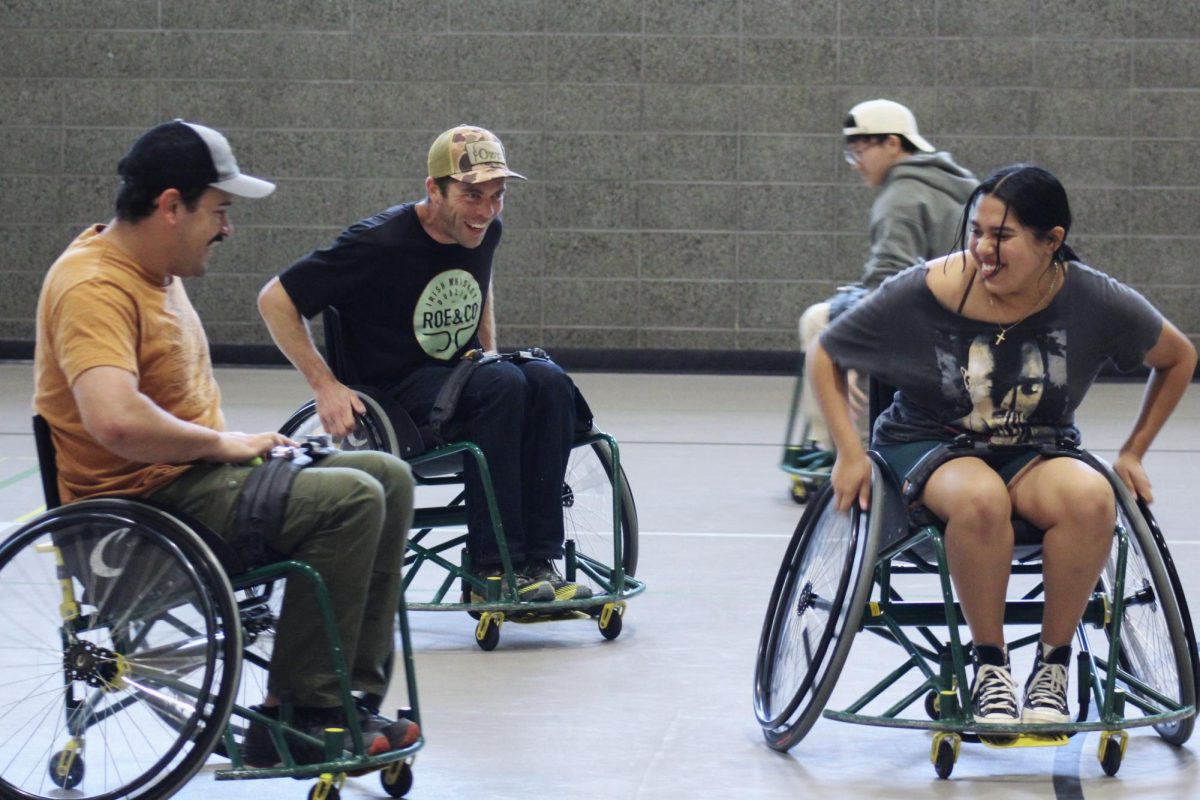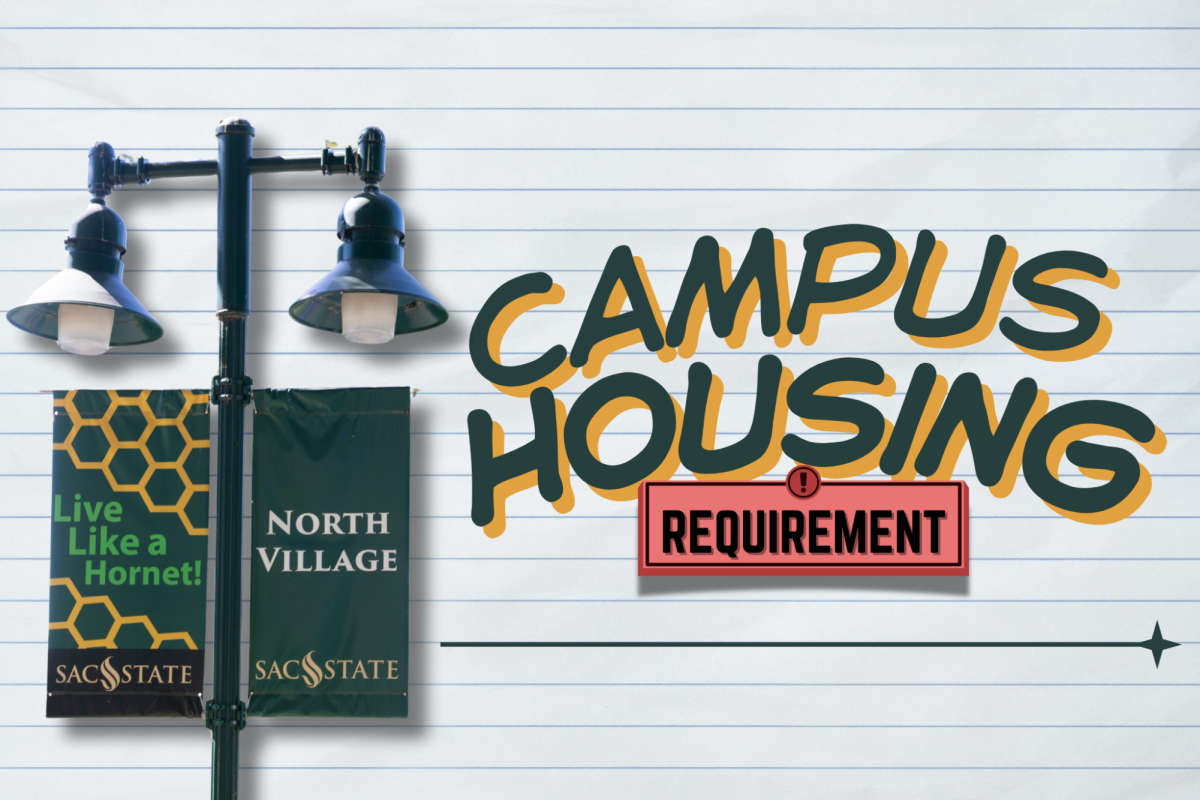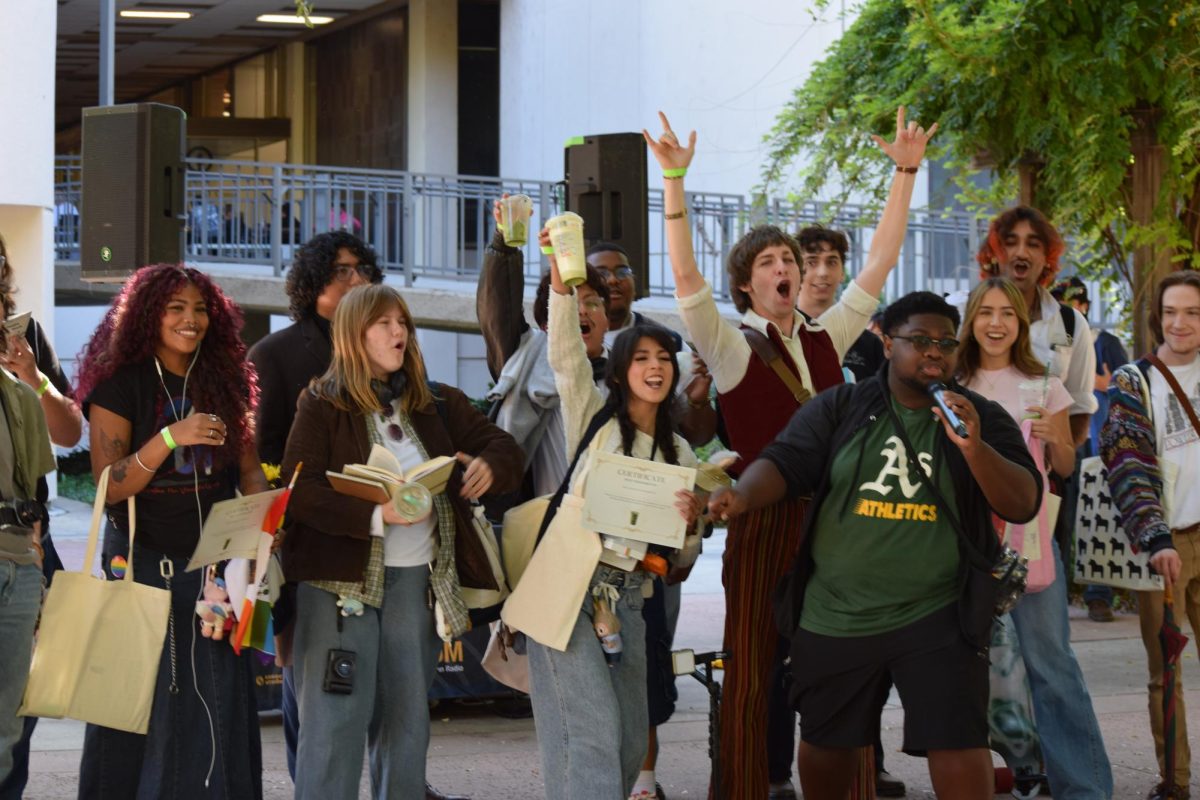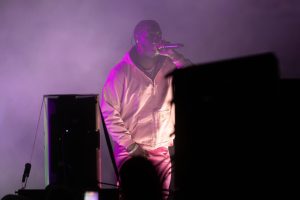Discussion aims to improve race relations
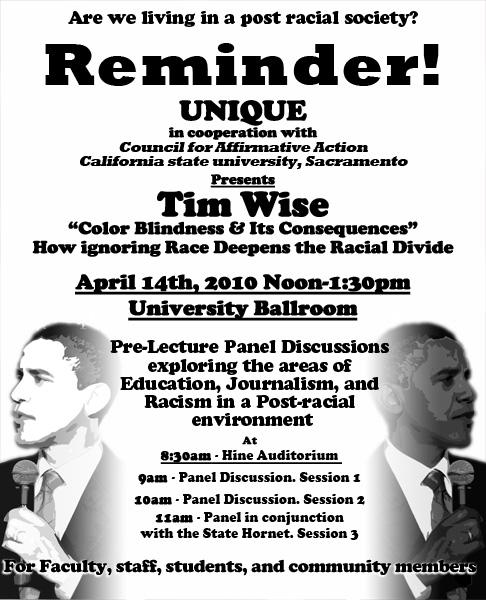
race::Matt Erickson – State Hornet
April 7, 2010
UNIQUE and the Council for Affirmative Action are partnering to improve race relations at Sacramento State through facilitating a discussion covering the issues of education, journalism and racism in a society after Barack Obama.
The two organizations are co-sponsoring the event, “From Affirmative Action to Affirmative Justice – Critical Dialogues, Part 2: A Talk with Tim Wise” on April 14. Wise, a civil rights activist and a well-known anti-racist writer, will talk about color blindness and its consequences, and the increasing racial divide among people. Prior to Wise’s presentation, there will be panel discussions covering the issues of education, media and hate crimes. The discussions will involve faculty, staff and students.
“There are people who think that racism doesn’t exist anymore and that we are only dealing with social class issues. Tim Wise and I disagree,” said Cecil Canton, professor of criminal justice and co-chair for the Council for Affirmative Action.
Frank Lilly, professor of teacher education and coordinator of the event, and Canton see examples of racism and hate crimes still happening on a national scale. They also see examples at Sac State.
“Why is it that when they voted on the health care bill, there were people yelling at members of Congress, calling them the N-word, spitting on them, and gay-bashing one of the congressman who is openly out?” Lilly said. “It’s very clear that our society has to work through issues with discrimination.”
Black congressmen like Rep. James E. Clyburn, D-South Carolina, have faced racial slurs and have been spit on by angry crowds because of their position on health care.
“What I saw on their faces, on the signs, what I was hearing, made me think, “This is not about health care,'” Clyburn said in an interview with The Washington Post. “It reminds me of that period in our history right after Reconstruction, when South Carolina had a black governor and the political gains were lost because of vigilantism, the rise of the Ku Klux Klan.”
At Sac State, Canton has seen signs in the bathroom with racial slurs directed toward black and Hispanic students. The staff got rid of the signs within the day. He feels that the administration should do more.
“It’s one thing to get rid of these signs, but that doesn’t stop the negative attitudes. Let’s discuss what’s going on rather than running and hiding from it,” Canton said.
Lilly said that the dialogue between people of color on campus, people who are Lesbian Gay Bisexual Transgender and Queer, and people with disabilities must be kept alive and will be discussed in the panels.
There is also discrimination against the LGBT at Sac State. Often times when students are getting ready for Pride Week, they publicize by writing on the sidewalks. Lilly has seen the frustration of students when people erase their chalk or write derogatory comments in their place. Lilly said some students even protest during that week.
“I understand we have free speech. However, when you are protesting the rights of certain groups, it’s a problem,” Lilly said. “Do we protest the Muslim, the Native American group, or the Taoist group on campus? Do we put them down? No we can’t.”
Students and faculty who have disabilities face discrimination as well. Lilly said that many of the buildings on campus aren’t accessible and do not comply with the Americans with Disabilities Act. Many of our faculty are not familiar with how to teach in a way that reaches all students, so in turn, the course instruction discriminates against some students, Lilly said.
The State Hornet will be sponsoring the journalism panel and the discussion topic will be “What the news media is doing right and wrong with regards to race reporting and reporting on diversity,” said Todd Wilson, editor-in-chief of the Hornet and senior journalism major.
Overall, newspapers make sure to cover all the people in a community, but newspapers sometimes miss the cultural context of stories and still fall back on stereotypes, Wilson said. Regarding the Hornet, Wilson feels that it does a good job having discussions and editorials that recognize the diversity at Sac State.
The panel discussion with Wise will discuss race relations at the local and national level, and explore the areas of this “post-racial” society, Canton said.
Wise will also be speaking about “white privilege,” which is a difficult conversation to have with people of color and people of non-color, said Ernest Uwazie, professor and director for the Center for African Peace and Conflict Resolution.
“People don’t often want to hear about white privilege, and they are ignoring the fact that educational systems, economic systems, and housing systems have all been monopolized and owned by white folks for quite some time now,” Lilly said. “As a result, it’s been difficult for folks of color to progress.”
Canton said Wise’s identity as a white male will bring a different perspective to the discussion.
“Wise is very frank. He’s sound in his arguments, and for a white man to talk about white man’s privilege is very bold,” Uwazie said.
Lilly believes the discussion between students, faculty and staff is a step toward improving racial relations. Everyone’s opinion is valued, whether or not they agree with Wise, Lilly said.
“It will be an open dialogue. (Wise) is talking about a system and an issue that needs to be discussed,” Lilly said. “If we maintain a dialogue, then we’re really moving forward. If we are pretending that things aren’t happening, then we will be hindering our progress as a society.”
Lauren Greenwood can be reached at [email protected].


